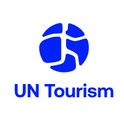The World Tourism Organization begins the International Year of Sustainable Tourism for Development
His Majesty King Felipe VI of Spain presided over the event celebrating the launch of the International Year of Sustainable Tourism for Development, organized by the World Tourism Organization (UNWTO). The gathering was attended by ministers of tourism from around the world. The celebration highlighted tourism's enormous potential to contribute to the development of all countries within the framework of the Sustainable Development Goals, and the need to continue advancing towards a more sustainable sector that generates benefits to local communities and promotes the conservation of cultural values and natural heritage.
The event, held in the El Pardo Palace in Madrid, Spain, was attended by the Prime Minister of Georgia, the Vice-President of Honduras, more than 40 tourism ministers and other senior officials from 57 countries.
The UNWTO Secretary-General underscored the continued growth of tourism since the beginning of the crisis – "in 2016, more than 1.2 billion people travelled around the world for tourism purposes and another 6 billion people travelled domestically" – and emphasized the need to move towards more sustainable tourism in all its dimensions.
"In parallel with the growth of the sector, there is also increased responsibility to advance towards greater sustainability, equity, inclusiveness and peace in our societies," he said.
For his part, His Majesty the King mentioned that "there are many reasons for declaring 2017 as the International Year of Sustainable Tourism for Development, such as greater appreciation of different cultures and thus peace among peoples".
"To have been chosen as the host country for the launch of the International Year is an acknowledgement of Spain's commitment in areas such as ecotourism, cultural tourism and agrotourism initiatives," he said.
The International Year of Sustainable Tourism for Development 2017 was declared in December 2015 by the United Nations General Assembly. The Year was also presented in Madrid on the opening day of FITUR, marking an important milestone in the 2030 Agenda and in the progress towards the achievement of the Sustainable Development Goals.
About UN Tourism
The World Tourism Organization (UN Tourism) is the United Nations agency responsible for the promotion of responsible, sustainable and universally accessible tourism.
As the leading international organization in the field of tourism, UN Tourism promotes tourism as a driver of economic growth, inclusive development and environmental sustainability and offers leadership and support to the sector in advancing knowledge and tourism policies worldwide.
Our Priorities
Mainstreaming tourism in the global agenda: Advocating the value of tourism as a driver of socio-economic growth and development, its inclusion as a priority in national and international policies and the need to create a level playing field for the sector to develop and prosper.
Promoting sustainable tourism development: Supporting sustainable tourism policies and practices: policies which make optimal use of environmental resources, respect the socio-cultural authenticity of host communities and provide socio-economic benefits for all.
Fostering knowledge, education and capacity building: Supporting countries to assess and address their needs in education and training, as well as providing networks for knowledge creation and exchange.
Improving tourism competitiveness: Improving UN Tourism Members' competitiveness through knowledge creation and exchange, human resources development and the promotion of excellence in areas such as policy planning, statistics and market trends, sustainable tourism development, marketing and promotion, product development and risk and crisis management.
Advancing tourism's contribution to poverty reduction and development: Maximizing the contribution of tourism to poverty reduction and achieving the SDGs by making tourism work as a tool for development and promoting the inclusion of tourism in the development agenda.
Building partnerships: Engaging with the private sector, regional and local tourism organizations, academia and research institutions, civil society and the UN system to build a more sustainable, responsible and competitive tourism sector.
Our Structure
Members: An intergovernmental organization, UN Tourism has 160 Member States, 6 Associate Members, 2 Observers and over 500 Affiliate Members.
Organs: The General Assembly is the supreme organ of the Organization. The Executive Council take all measures, in consultation with the Secretary-General, for the implementation of the decisions and recommendations of the General Assembly and reports to the Assembly.
Secretariat: UN Tourism headquarters are based in Madrid, Spain. The Secretariat is led by the Secretary-General and organized into departments covering issues such as sustainability, education, tourism trends and marketing, sustainable development, statistics and the Tourism Satellite Account (TSA), destination management, ethics and risk and crisis management. The Technical Cooperation and Silk Road Department carries out development projects in over 100 countries worldwide, while the Regional Departments for Africa, the Americas, Asia and the Pacific, Europe and the Middle East serve as the link between UN Tourism and its 160 Member States. The Affiliate Members Department represents UN Tourism's 500 plus Affiliate members.
Rut Gómez Sobrino
Principal Media Officer
(+34) 91 567 81 60
UN Tourism
